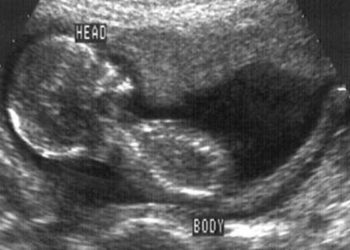Periconceptional folic acid for prevention of neural tube defects [Classics Series]
1. Among women seeking pregnancy, those randomized to folic acid supplementation were significantly less likely to develop a fetus with a neural tube defect.
Original Date of Publication: December 1992
Study Rundown: As of the late 1980s, neural tube defects complicated between 2 and 3 out of every 1000 pregnancies. At this time it was well established that folic acid supplementation prior to pregnancy and throughout the period of organogenesis (8 completed weeks of gestation) was associated with reduced incidence of recurrent neural tube defects (NTDs). Although it was known that folic acid supplements were advisable among women whose prior pregnancies were complicated by a neural tube defect, the overwhelming majority (>90%) of neural tube defects occurred in women without a history of pregnancy complicated by NTD. Therefore, whether or not periconceptional folic acid supplemention might decrease the incidence of the first occurrence of a neural tube defect was unknown. Folic acid, also known as vitamin B9, is necessary to complete numerous cellular processes including DNA synthesis and repair, cell division and growth. While the exact mechanism by which folate deficiency contributes to neural tube defects is unknown, multiple theories exist. Differential methylation of the insulin-like growth factor 2 gene (IGF-2) contributes to normal intrauterine fetal development and occurs in the presence of adequate folate such that folate deficiency might impair development and lead to NTDs. Folate deficiency might also contribute to the development of neural tube defects by disallowing post-translational methylation of the cytoskeleton, which is requisite for differentiation.
This landmark study demonstrated that periconceptional vitamin supplementation prior to pregnancy and during organogenesis was associated with marked reduction in the first development of neural tube defects. Strengths of this investigation include randomized, double-blinded design. Limitations include lack of blinding, although the diagnosis of neural tube defect should not be appreciably altered or biased by physician or patient knowledge of randomization assignment, as well as a Hungarian-only population such that results may not be generalizable to populations with other demographics. Future investigations would go on to confirm the findings of the present investigation in ethnically diverse populations and more clearly characterize the recommended dose of folic acid supplementation as 400-600mcg (0.4-0.6mg) in healthy women and 4mg in women with a history of fetal NTD.
Click to read the study in NEJM
Dr. Alan Peaceman, MD, talks to 2 Minute Medicine: Northwestern University School of Medicine; Chief, Division of Obstetrics and Gynecology-Maternal Fetal Medicine.
“This landmark randomized trial was the first to demonstrate that periconceptional folic acid is associated with reduction in the first incidence of neural tube defects. Future investigations would go on to confirm these findings and contribute to current recommendations for daily, periconceptional intake of at least 400mcg of folic acid in healthy women and 4mg of folic acid supplementation in women with a history of a fetal neural tube defect.”
In-Depth [randomized controlled trial]: A total of 7540 Hungarian women planning pregnancy, of which 4753 went on to achieve pregnancy, were randomized to receive one tablet of a multivitamin supplement containing 800mcg of folic acid (n = 2104) or a trace element supplement (placebo, n = 2052) for at least one month prior to conception through the date of their second missed menses. The primary outcome was development of a fetus or infant with a neural-tube defect or congenital malformation.
Compared to women randomized to placebo, women randomized to taking a periconceptional multivitamin containing folic acid were less likely to conceive a child with a neural tube defect (0 cases vs. 6 cases, 0.0% vs. 0.3%, p = 0.03) or a congenital malformation (1.33% vs. 2.29%, p = 0.02). The incidence of cleft lip or cleft palate did not differ between groups.
Image: PD
©2015 2 Minute Medicine, Inc. All rights reserved. No works may be reproduced without expressed written consent from 2 Minute Medicine, Inc. Inquire about licensing here. No article should be construed as medical advice and is not intended as such by the authors or by 2 Minute Medicine, Inc.







